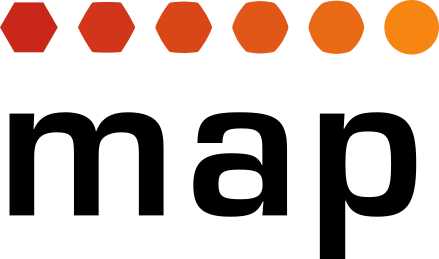Structure
Overview of Program Structure
The structure of MAP is comparable with a building constructed on strong Fundamentals, extending over several floors of Basics and Focal Subject courses, giving insights into the world of research by miniprojects, into scientific skills and into soft skills. The four holding columns are four key areas of modern materials and processes. The building is completed by the demonstration of the acquired knowledge and skills in the Master thesis as the roof.
Furthermore students can choose whether they complete additional qualifications in research or industry.
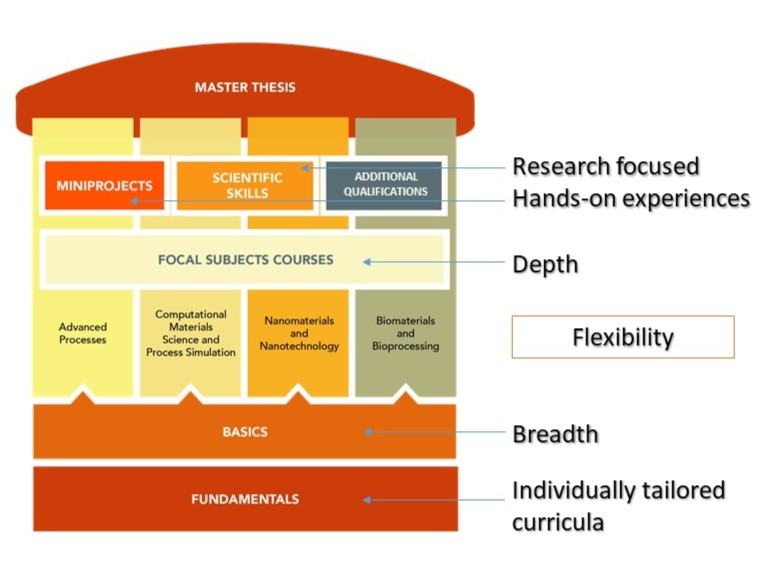
Program Structure
Based on continued dialogue with our students, lecturers and external advisers on potential further improvements of our program, we have devised an adjusted the program structure.
This program structure combines the renowned core attributes of MAP with a streamlined and optimized module structure. A special element in the MAP curriculum is the opportunity to graduate with “additional qualifications” (“Zusatzstudien”). These optional courses provide students with certified additional competence and skill sets with a focus on scientific research or for a career in business and industry.
Information on the Program Regulations (“Fachprüfungsordnung”) valid from winter semester 2019 as well as on the MAP Curriculum (“Studienverlaufsplan”) is provided in the section Program Regulations of this website.
MAP is designed as a 4 semester Master’s program with the following general structure. The content of the individual semesters is described in detail below:
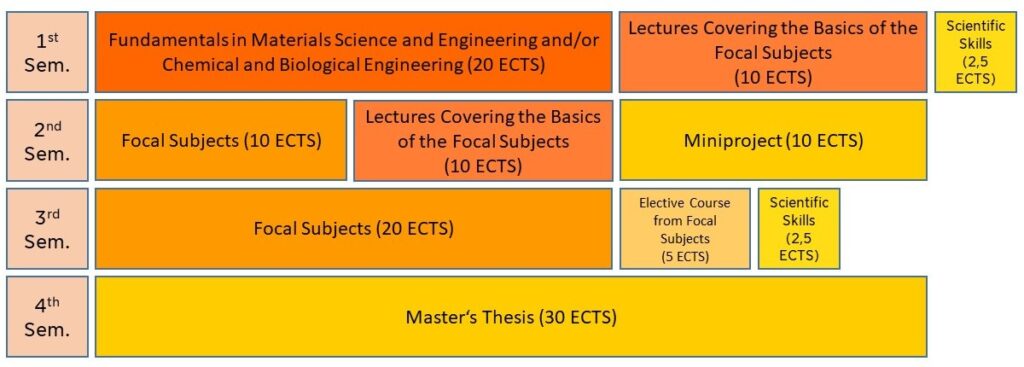
Additional qualifications (“Zusatzstudien”) are defined combinations of lectures, soft skills, practical courses and an internship that are tailored to provide enhanced competences with a focus on research qualifications or business and industry qualifications. Each of these two blocks consists of courses with a total of 30 ECTS points and successful participation will be certified on the graduation documents. The participation in additional qualifications is optional.
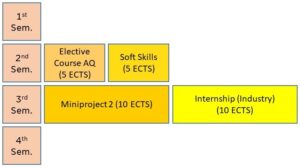
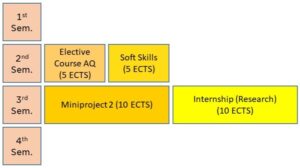
Program accreditation
The MAP Elite Masters Program is one of the first accredited degree courses at the Friedrich-Alexander-Universität Erlangen-Nürnberg.
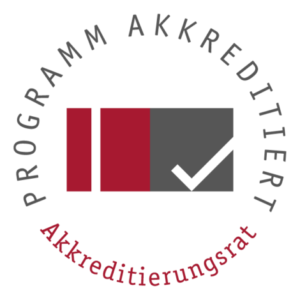
Fundamentals (20 ECTS)
The Fundamentals lectures aim to bring all students up to the same level of knowledge and competence in the foundations of Materials Science and Engineering and Chemical and Biological Engineering. The courses are specially designed for the interdisciplinary nature of MAP and ensure that all participating students share the same foundations of knowledge, regardless of their scientific background. During the orientation period preceding the first semester, the program chairs and other leading professors of the degree program assign students a personalized selection of Fundamental classes based on the students’ previous studies. In some cases, the Fundamentals are assigned in short personal discussions with one of the MAP professors. In general, those students who have a Bachelor’s degree in Materials Science and Engineering take the Chemical and Biological Engineering Fundamentals and vice versa.
Scientific Skills / Lab Course (2.5 ECTS)
Associated with the choice of Fundamentals is a practical course. In the mandatory safety instruction, the students learn to identify potential hazards and work safely in a laboratory environment. The students apply the knowledge gained in the different MAP modules, learn how to operate state-of-the-art scientific equipment, perform experiments, analyze, discuss and summarize their results in a written report.
Basics (10 ECTS)
The Basics classes are attended by all MAP students and introduce the important topics of the four Focal Subjects.
Basics (10 ECTS)
The Basics classes continue in the second semester.
Focal Subjects (10 ECTS)
The MAP program is built around four Focal Subjects. These are key areas at the intersection of materials and processes with broad impact on a wide range of existing and emerging applications. Starting from the second semester, students focus on two of the four focal subjects.
Miniproject (10 ECTS)
The miniproject is an independent research project that is carried out by the students in a research group of a lecturer involved in MAP or one of the constituent departments at FAU. Under guidance of a supervisor, the student conducts a scientific study on a current research topic within the chosen research group. This study includes a review of current literature on the chosen topic, the planning and execution of experiments and simulations to expand existing knowledge and the critical interpretation and discussion of the results of the study in a (graded) written project report. Miniprojects are highly popular among students and a trademark of the MAP program. It offers an early possibility to get involved in cutting-edge science at FAU. The best miniprojects have led to scientific publications authored by the MAP students.
Focal Subjects (20 ECTS)
Further lectures in the students’ chosen Focal Subjects.
Elective Course from Focal Subjects (5 ECTS)
Students may choose one course freely according to their own interest from any courses offered within the four Focal Subjects. This module gives the students a free choice to expand their scientific knowledge and obtain competences in an additional MAP-related field.
Scientific Skills / Literature Review (2,5 ECTS)
In a series of lectures, the students learn the basic principles of finding and managing scientific literature, scientific writing as well as effective scientific communication with posters. They then put these concepts into practice by writing a short literature review on the current state-of-the-art on a subject related to one of the MAP Focal Subjects. This has proven to be a valuable training exercise for scientific writing and some MAP review articles have even been published!
Master’s Thesis (30 ECTS)
The 6-month Master’s project is carried out at a participating institute of MAP, or, in occasional cases, at an institute within the immediate MAP environment. It is an independent research project performed by the student under supervision and guidance of a supervisor. The project combines all aspects of the acquired skill sets. It involves a survey of scientific literature to understand the state-of-the-art of the research field, independent planning, conducting of experiments as well as the analyzing and interpretation of the obtained data. The research project is summarized in the Master’s Thesis, a complete scientific document written by the student. The results are also presented in a short talk within the chosen institute.
Additional Qualifications (“Zusatzstudien”) (30 ECTS)
MAP students have the opportunity to gain additional certified qualifications (“Zusatzstudien”) with a focus on research qualifications or qualifications for a career in business and industry.
2nd Semester Courses
Free specialization “Wahlmodul” (5 ECTS)
Students may choose one course freely according to their own interest from all courses offered at the Faculty of Sciences (Naturwissenschaftliche Fakultät) and the Faculty of Engineering (Technische Fakultät) of the FAU. This module gives the students a free choice to expand their scientific knowledge and obtain competences in an additional field of Science and Technology.
Soft Skills (5 ECTS)
MAP soft skills courses strengthen, amongst others, the interpersonal, communication and management skills of our students. Changing seminars include for example inverted classroom, life in academia, and project management.
3rd Semester Courses (öffnet in neuem Tab)
Miniproject 2 (10 ECTS)
The second miniproject builds up on the lessons learned in the first miniproject: students can further hone their research skills and gain first-hand practical experience in a second scientific topic of their free choice.
Internship Research (10 ECTS)
This module aims to develop students’ research-related knowledge and transferable work skills and capabilities via a 12-week internship, which may be conducted in research and development departments in industry or research-related institutions in Germany or abroad. Students are required to organize the internship independently. However, the MAP office and professors involved in MAP are always happy to provide support and advice.
2nd Semester Courses
Free Specialization “Wahlmodul” (5 ECTS)
Students may choose one course freely according to their own interest from all courses offered at the Faculty of Engineering (Technische Fakultät) or the Faculty of Business, Economics and Law (Rechts- und Wirtschaftswissenschaftliche Fakultät) of the FAU. This module is especially integrated into the additional qualification towards a career in business and industry to provide an opportunity to acquire important competences and knowledge in fields not traditionally touched in an engineering program (such as patent law or business management). Depending on their own preferences, students may also choose to deepen their knowledge in a field of technology.
Soft Skills (5 ECTS)
MAP soft skills courses strengthen, amongst others, the interpersonal, communication, business and management skills of our students. The changing seminars include for example courses on management and the elaboration of a business plan.
3rd Semester Courses
Miniproject 2 (10 ECTS)
The second miniproject builds up on the lessons learned in the first miniproject: students can apply their skill set from the first miniproject to more applied research topics.
Internship Industry (10 ECTS)
This module aims to develop students’ industry-related knowledge and transferable work skills and capabilities via a 12-week internship in an industrial environment in Germany or abroad. Students are required to organize the internship independently. However, the MAP office and professors involved in MAP are always happy to provide support and advice.
Fundamentals
The Fundamentals classes aim to bring all students up to the same level of knowledge and competence in the foundations of Materials Science and Engineering and Chemical and Biological Engineering. The courses are specially designed for the interdisciplinary nature of MAP and ensure that all participating students share the same foundations of knowledge, regardless of their scientific background. During the orientation period preceding the first semester, the program chairs and other leading professors of the degree program assign students a personalized selection of Fundamental classes based on the students’ previous studies. In some cases, the Fundamentals are assigned in short personal discussions with one of the MAP professors. In general, those students who have a Bachelor’s degree in Materials Science and Engineering take the Chemical and Biological Engineering Fundamentals and vice versa. Fundamentals classes are examined in various ways although at the end the mark is converted into a pass/fail which is shown on the MAP transcript.
Associated with the choice of Fundamentals is a practical course wherein students carry out 6 different lab experiments and write up a report.
Basics
Basics lectures are lectures that broadly introduce the four Focal Subjects. These lectures are mandatory for all students, regardless of the choice of Focal Subjects. With these lectures, we aim to provide a fundamental understanding of scientific concepts, special topics and characterization methods that of general importance for the different Focal Subjects. MAP students therefore obtain a broad education and general knowledge in all subject areas before specializing further in the courses provided in the Focal Subjects.
Focal Subjects
The MAP program is built around four Focal Subjects. These are key areas spanning materials and processes, the intense study of which promises students with broad opportunities to carry out influential activities in academia and industry following graduation.
Advanced Processes
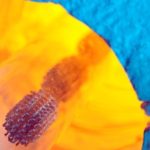
This focal topic links basic and trendsetting insights into the processing of advanced materials and chemicals with methods and experiences of modern process technology.
Thereby one acquires skills to break new ground in process engineering according to the principle “Innovation by Synergy”.
Biomaterials and Bioprocessing
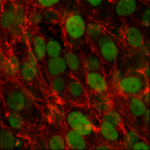 One learns to understand design principles and mechanical optimization strategies of selected biomaterials. In addition one obtains an overview of experimental research methods and possibilities to transfer design principles from nature.
One learns to understand design principles and mechanical optimization strategies of selected biomaterials. In addition one obtains an overview of experimental research methods and possibilities to transfer design principles from nature.
This includes everything from cell cultivating to “Organ Repair” in which, for example, tissue is cultivated within biocompatible matrix structures.
Computational Materials Science and Process Simulation
 Those who specialize in this focal subject will acquire the theoretical and practical knowledge required to successfully model and simulate materials and processes from the atomic scale up to individual components or devices. Numerical methods are first sketched in regular lectures and then used in computer labs to solve practical problems.
Those who specialize in this focal subject will acquire the theoretical and practical knowledge required to successfully model and simulate materials and processes from the atomic scale up to individual components or devices. Numerical methods are first sketched in regular lectures and then used in computer labs to solve practical problems.
The students learn to work with state-of-the-art simulation packages, including computational fluid dynamics, finite-element and atomistic simulation codes.
Nanomaterials and Nanotechnology
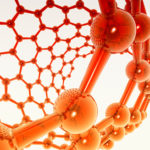 Based on the fundamentals in nanoscale material production, this focal subject covers the whole process chain of nanodisperse system processing.
Based on the fundamentals in nanoscale material production, this focal subject covers the whole process chain of nanodisperse system processing.
Special focus is on the challenge to build a bridge from atomic, molecular interactions to large-scale technical realization.
The following videos provide an insight into our Focal Subjects
Advanced Processes
Advanced Processes & Computational Materials Science and Process Simulation
Biomaterials and Bioprocesses
Biomaterials and Bioprocesses & Nanomaterials and Nanotechnology
Miniprojects
The second semesters also sees the students enter the research labs for the first time. Typically, students delve deeper into one of their Focal Subjects with their miniproject, but sometimes miniprojects take place with an interdisciplinary focus. Students spend a total of around 300 hours on these projects. The miniprojects, which should be written up in the form of a short scientific paper, are graded. Sometimes they lead to publications in scientific journals.
The miniprojects are always part of the current research topics of the chairs of the MAP host departments Materials Science and Engineering (WW) and Chemical and Biological Engineering (CBI). To get an insight into the current research topics, please visit the different websites of the chairs of our departments WW and CBI.
Our Focal Subject Heads are also excellent contacts when looking for current miniproject topics.
Soft Skills
Soft skills courses offered by MAP and other institutions such as the Faculty of Engineering are an optional part of the core curriculum, but a mandatory part of the Additional Qualifications. They strengthen, amongst others, the interpersonal, communication, economic and management skills of our students. Field trips provide the opportunity to make contact and gain direct insights into the daily business of organizations operating in the fields of research and industry.
Academic Board
The site “Contact Details” provides detailed information on the Chairs and Focal Subject Heads.
Curriculum and Regulations
The site Program Regulations provides detailed information on the program curriculum and on the program regulations (Prüfungsordnung).
